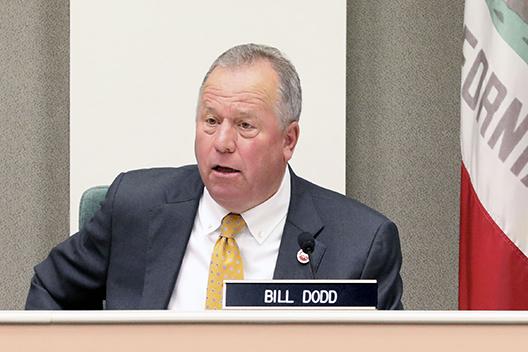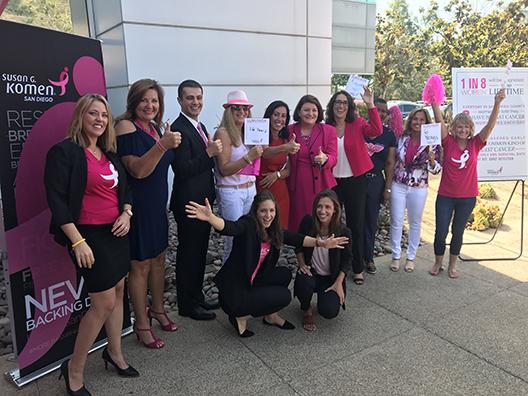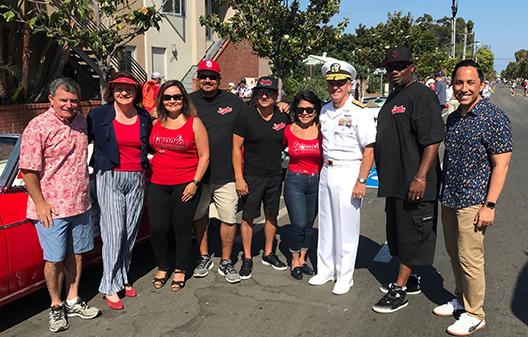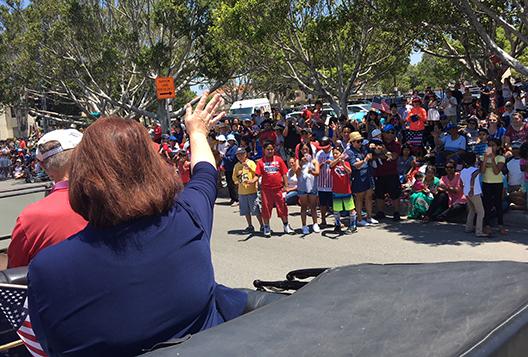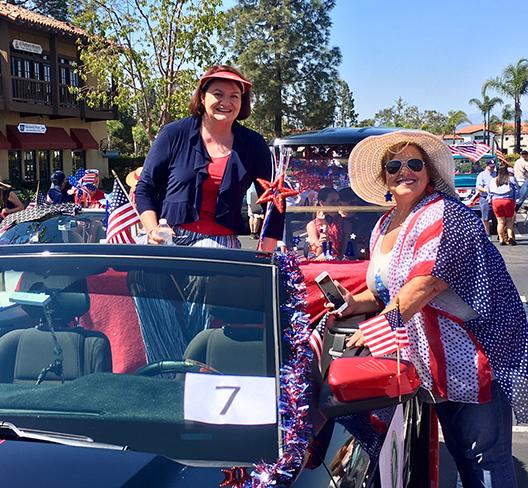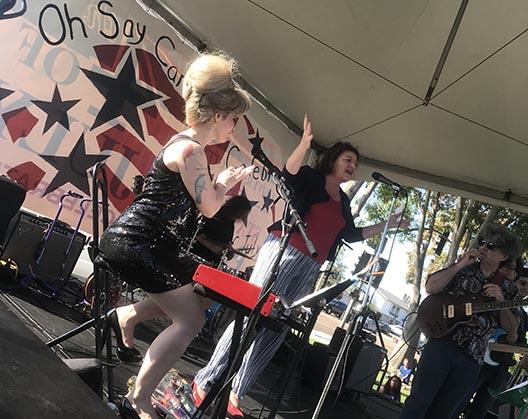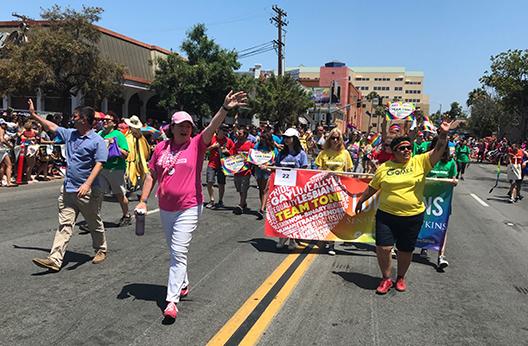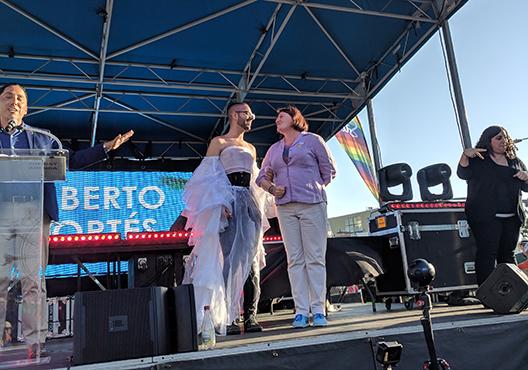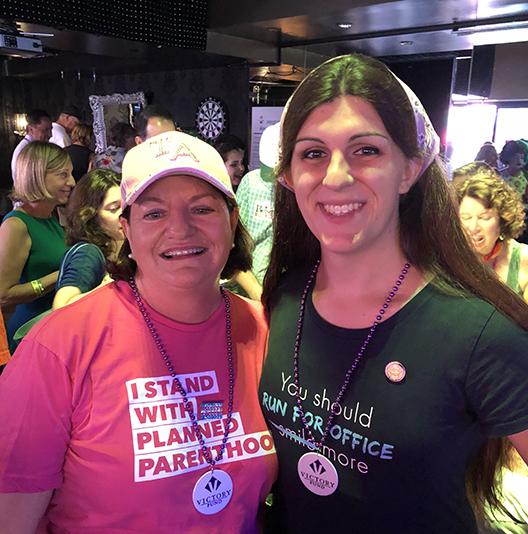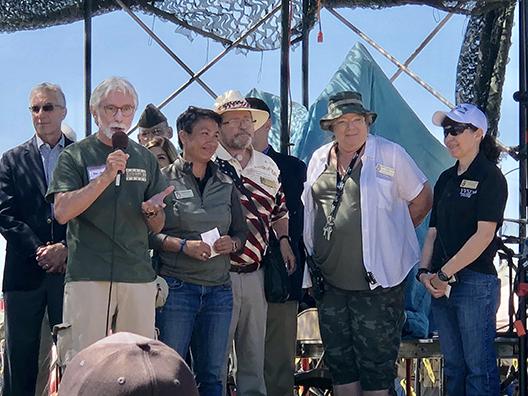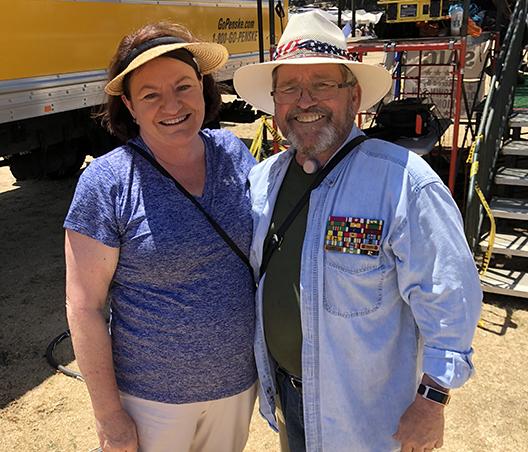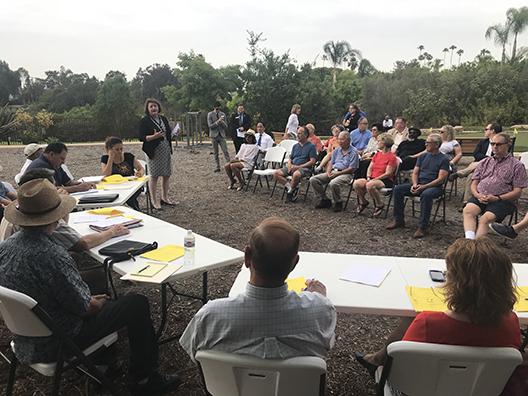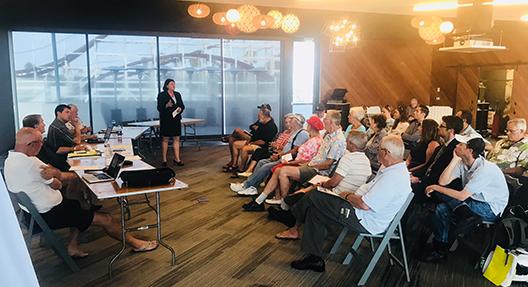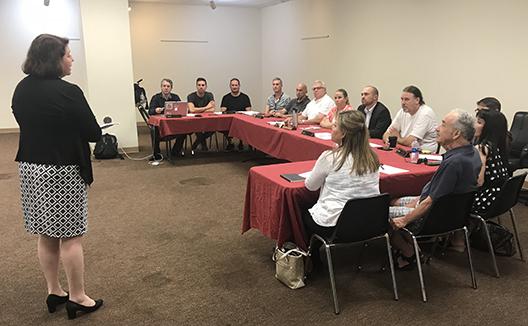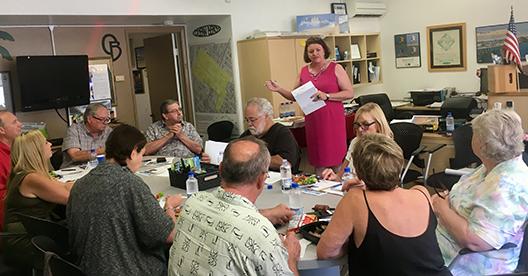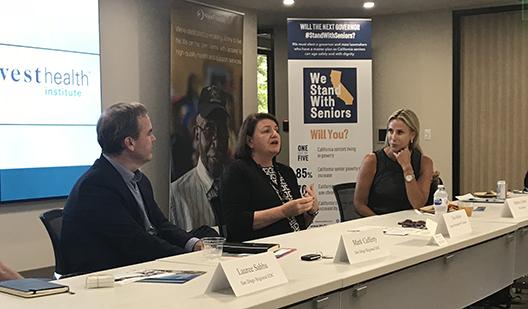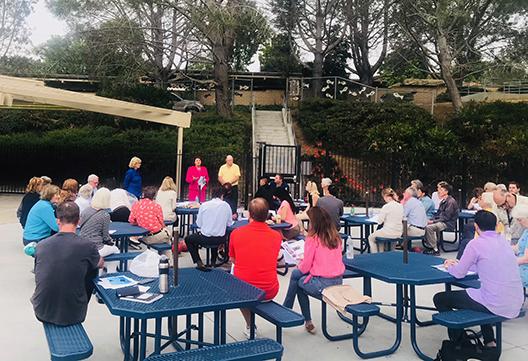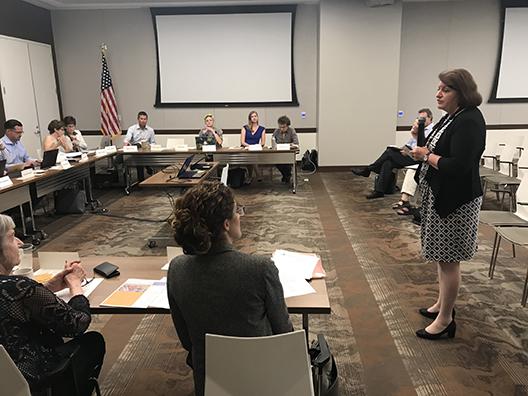August 2018 Newsletter
|
|
When a brush fire broke out in July along Creek Hollow Road near Ramona, it carried a familiar crackle. Eleven years ago, one of the most devastating fires in San Diego history came roaring out of the same backcountry. Stoked by Santa Ana winds, the Witch Creek fire leaped across I-15 and didn’t stop burning until it devoured 197,990 acres and 1,125 residences.
We were luckier this time. Firefighters on the ground and in the air corralled the fire before it could grow. But we would be wise to brace for the next one, and then the next one after that – because, due to conditions created by our changing climate, they are coming, far more rapidly than we would like.
Fire season used to be limited to early summer and fall – now it’s January to December. As destructive and deadly as 2017 was, 2018 is on track to surpass last year in the number of wildfires and the number of acres burned.
And as disaster-prone California turns even more perilous, we are confronted by a new reality. Not only must we come to the aid of communities that have been devastated; we must also take steps to reduce the risk of these massive fires.
The Governor and the Legislature have responded with legislation and dollars. The state budget that took effect July 1 includes $673.3 million in new money to help communities recover from the 2017 fires and to help reduce destructive fires going forward.
Several bills are making their way through the legislative process. For example, SB 1260 would fund the removal of dead trees from high-fire-hazard zones and establish a cost-sharing program to assist homeowners with fire-resistant improvements. SB 824 would prohibit insurance companies from cancelling or not renewing a homeowner’s policy for one year in counties with a declared state of emergency.
But perhaps the most difficult task ahead of us as we enter our final month of the 2018 legislative session is figuring out who ultimately bears the burden of paying for their costs.
How do we portion out blame when the acts of humans conspire with the acts of nature? We can go on pointing fingers at each other, but we would be better served by acknowledging that wherever we have put down stakes, we’ve taken on risk. It’s now time to roll up our sleeves and get to work on a comprehensive plan that will better prepare us for the wildfires to come.
In that spirit, we have convened a conference committee of the state Legislature to deal with the question of wildfire preparedness and response. Beginning their work on July 25, five members each of the Senate and Assembly, Democrats and Republicans, are considering potential legislation to address the problem. All of the committee’s work is being done in the open, with agendas and reports available to the public.
A major issue the committee will tackle is what standard should be applied to fires caused by an investor-owned utility’s transmission lines. Should a different standard apply when a utility is prudent and manages trees and infrastructure properly vs. when a utility acts negligently and fails to maintain its infrastructure to the highest of standards?
Does the utility, alone, bear the costs of the property damage? If so, can the utility be allowed to pass along the costs to consumers by raising its rates? What if residents in such a high-risk zone fail to purchase adequate fire insurance? Does their loss become a public burden? Will they be subsidized to build again in the same high-risk zone?
These are difficult questions fraught with emotion. They deserve nothing less than to be dealt with in an above-board manner with state legislators working collaboratively with citizens, policy experts, and all other concerned parties.
In 2017, the first year of the current two-year session, Governor Jerry Brown signed all 12 of my bills that were sent to him by the Legislature. The biggest of those was SB 2, which created a permanent source of funding for affordable housing. The first-year funding for SB 1 – estimated at $250 million – is currently being collected and will soon be distributed to San Diego and all other regions across California.
Below is a rundown of the legislation I have introduced in 2018. With the exception of SB 945, which was enacted into law through the budget process, each of these bills has passed the Senate and currently awaits action in the Assembly Appropriations Committee. All bills must be passed by both houses of the Legislature by August 31 in order to be eligible for the Governor’s signature.
SB 945: In 2016, Governor Brown signed my bill AB 1795, providing uninsured and underinsured Californians with expanded access to treatment for breast cancer and cervical cancer. SB 945 builds on AB 1795 by removing arbitrary time limits for care. Currently, the state Breast and Cervical Cancer Treatment Program stops providing medical care for breast cancer after 18 months and cervical cancer after 24 months, regardless of medical need. SB 945 removes those limits and requires continuation of treatment as long as necessary. Funding for the expansion of cancer treatment resulting from the removal of these barriers was included in the new state budget that took effect on July 1, making it unnecessary for SB 945 to move forward.
|
|
SB 970: Hotels and motels are ground zero for human traffickers, which means they’re hiding their criminal activities in plain sight. SB 970 will require all hotels and motels in California to provide training for their employees on how to spot the signs of human trafficking and report those signs to law enforcement.
SB 1005: Sometimes, survivors of domestic abuse who must flee their home to get away from their abuser can’t afford the extra rent or deposit required to move their dog or cat into a new apartment. SB 1005 makes explicitly clear that survivors of violent crimes, such as domestic violence, may use state-provided victim-relocation funds to which they are already entitled to pay for expenses related to housing an animal companion.
SB 1086: Thanks to AB 1035, passed in 2014, if a public-safety officer dies from a job-related illness more than 240 weeks after being diagnosed, his or her family can still qualify for state-provided survivor death benefits. The bill stretched that statute of limitations to 420 weeks. However, AB 1035 is scheduled to sunset in 2019. My bill, SB 1086, removes the sunset and makes the 420-week limit permanent. A police officer or firefighter’s family should not have to suffer because she or he lived too long.
SB 1125: Currently, if a patient receives treatment through Medi-Cal at a community health center from both a medical provider and a mental-health specialist on the same day, the state will reimburse the center for only one visit. A patient must seek mental-health treatment on a subsequent day in order for that treatment to be reimbursed as a second visit. There’s no good reason for that. SB 1125 allows health centers to bill Medi-Cal for both visits, even if they occur on the same day. This change will ensure that more people get the mental-health services they need.
SB 1367: This bill follows up on two of my previous bills – AB 392, which made the San Diego River Conservancy permanent, and SB 214, which strengthened the conservancy’s capacity to protect and enhance the San Diego River watershed. SB 1367 gives the San Diego River Conservancy the power to help protect and enhance other nearby rivers – the Otay, Sweetwater, and Tijuana rivers – and their watersheds by helping identify and pursue funding sources, developing strategic plans, and working with local nonprofits and government agencies.
For me, the Fourth of July is special not only because we get to celebrate the day our great country declared its independence – but also because it gives me the opportunity to get around to so many communities in the 39th District and mark the holiday in so many unique ways. By the end of the day, I had participated in three parades and two community celebrations in Coronado, Mira Mesa, Mission Hills, Rancho Bernardo, and University City. It was an incredible day.
|
|
|
|
|
|
|
|
|
|
Once again, hundreds of thousands of people enjoyed a joyful Pride weekend in San Diego, headlined by the region’s most popular parade. I was pleased to be joined by City Councilmembers Georgette Gomez and Chris Ward as our contingent walked down University and Sixth avenues wishing parade-goers a very happy Pride. I was proud also to help kick the weekend off at the Spirit of Stonewall Rally on Friday evening and welcome the visiting Danica Roem, the nation’s first transgender state legislator from my home state of Virginia, at a special brunch event on Saturday morning. When it comes to the free expression of our authentic selves, San Diego really shows its support!
|
|
|
|
|
|
I am overwhelmed by the outpouring of support and generosity from the community for our Socks for Stand Down drive. For the fourth year in a row, I asked you to donate new pairs of socks and underwear for homeless veterans who participate in San Diego Stand Down, and – wow – you really came through! On July 1, I attended Stand Down’s graduation ceremony, and as I watched, I was filled with gratitude for how the people of District 39 stepped up to help our struggling military veterans. The final numbers: 6,339 new pairs of socks and 669 new undergarments. I can’t thank you all enough!
|
|
|
|
My district staff is always available to help constituents navigate a complex web of state agencies.
Recently, a constituent in Coronado contacted my office looking for help with the state Franchise Tax Board (FTB). The FTB sent her a notice saying she needed to pay taxes on income she earned in the 2016 tax year. However, she lived and worked in Michigan that year and paid state taxes there, and she submitted a Michigan state tax return as proof.
My staff was able to connect the constituent with a member of the FTB’s Executive and Advocate Services staff, and together they resolved the issue.
If you’re having trouble working out an issue with any state agency, please call my office at 619-645-3133, and my staff will do everything in their power to help.
|
My District Staff |
Where to Find Me Online
|
My district office is located at 1350 Front St., Room 4061, San Diego, CA 92101.
|
|
|
|
|
|
|
|
|
|
|
|
|
|

